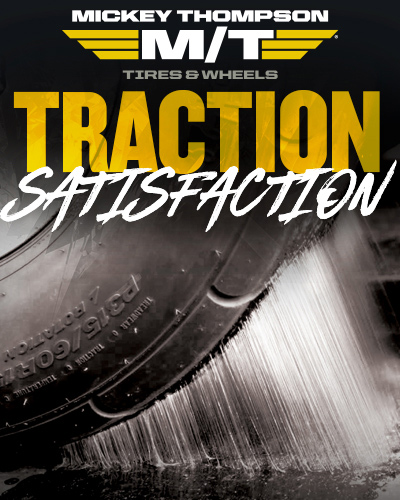UP FRONT WITH JON ASHER: NO POINTS FOR RECORDS? WHY NOT?


At a moment in time that may be the most critical ever for the National Hot Rod Association a decision has been made by management, one that escapes logic. We’re talking about the abandonment of providing championship points for national elapsed time records in the professional classes.
Think, for just a moment, about “where” NHRA is as the 2016 season dawns. A brand new and seemingly promising television package with FOX Sports is about the debut with at least one untried studio commentator. There's also a new Pro Stock. Meanwhile, outside of the broadcast center there’s the ascension of Peter Clifford to the top management position. While that promotion came more than six months ago, this year will mark the first time Clifford has been the sole decision-maker, so this puts him squarely in the spotlight.
In addressing the decision to stop awarding points for national records, we must offer a brief bit of history. As the Top Fuel cars began to approach 300MPH speeds the NHRA began to have real concerns, concerns shared by drag racing’s sole fuel car tire supplier, Goodyear. Everyone was concerned about the specter of a Top Fuel car shredding a tire at 335 and what that might lead to. Think of Larry Dixon’s wild ride at Gainesville last year and multiply it by 10.
To counter the speeds NHRA adopted a new rule that ended bonus points for speed records. Their figuring was that if there was no reward for going fast, maybe the guys wouldn’t try so hard. In addition to the dropping of bonus points came the mandatory rearend gear rule of 3.20:1, this at a time when a lot of cars were running 2.90:1 ratios.
Sounds okay? So, six weeks go by and the radio advertising for the Winternationals begins to be heard over Southern California stations and what’s the hook line? “Who will be the first to break the 300 mile per hour barrier? Come to the Winternationals and find out!” The tag line was changed for Phoenix and then again for Gainesville – where Kenny Bernstein and tuner Dale Armstrong broke the barrier on March 20, 1992.
Could the NHRA have been any more hypocritical than to wring their collective hands over increasing speeds in one moment, and then start touting those speeds in the very next breath? Probably not.
Drag racing has been all about speed since the very beginning. Believe it or not, only readers of this column really know what elapsed times are all about. For the unwashed masses and the media the speeds are everything, with the elapsed times mere afterthoughts at best. Why do you think they’re always announcing a driver’s speed during qualifying for the Indy 500 when, in truth, it’s the time it takes that car to go around the track that really counts.
I know this won’t “connect” with a lot of you, but there was a time when setting Top Speed of the Meet (which was always included in NHRA’s official post-race handouts) was really important. It was also worth (for its time) a pretty decent amount of money, almost all posted by the contingency sponsors. Top Speed at a race like Indy could be worth right around $2,000, and if you’re thinking that isn’t much, consider that winning the race would only bring in $15,000!
Even in those “early days” the bonus points for speed and elapsed time records impacted far too many championships for us to try and conjure up right now, so let’s jump forward. Regardless of how you felt at the time, or even now, about Tony Schumacher’s failure to shut off when the starter ordered him to at the 2004 Finals, he was allowed to complete the event. Facing Doug Kalitta in a very tight points race Schumacher stunned everyone by setting a new elapsed time mark while winning the finale. He needed a record-setting run to defeat Kalitta, but let’s just say that even in winning he would have been 75 points behind the Michigander. Therefore, it was those 200 markers earned for the record that put him over the top.
While the 1% backup rule for records has been a part of drag racing since the dawn of time I personally have a lot less trouble “letting go” of that than I do the concept of totally eliminating points for elapsed time records. Someone in Glendora – someone who actually understands modern drag racing and someone who also knows the sport’s history – should have interceded on behalf of continuing to award points for records. Further, that same individual should have been pushing – and really hard – for points being awarded for speed marks as well – unless that “someone” was actually behind this poorly conceived decision that’s going to do nothing to enhance any aspect of drag racing.
We’re all about speed – and elapsed times too. But we’re not now because there’s not going to be an ounce of excitement from the fans or media when Terry McMillen rolls up against Steve Torrence in the final round of the Finals with the title still up for grabs. If Torrence rolls up there knowing that even if he wins the race he’s going to fall 6 points short – and the racing conditions are ideal – and a new record is going to be meaningless, does he have any incentive to go all out? Is he going to put an engine into orbit if he has no chance of winning the championship? On the other hand, McMillen knows how things stand, too, so is he going to be a little conservative, figuring to give up the race title in favor of the championship? He’d be crazy not to.
And NHRA is crazy for eliminating one of the most exciting aspects of drag racing, one that’s given them valuable minutes of TV and inches of newspaper exposure, and one that, despite what they may say, has also helped them sell thousands of tickets.
I know, I know. NHRA never goes back on something like this – but they should.



































